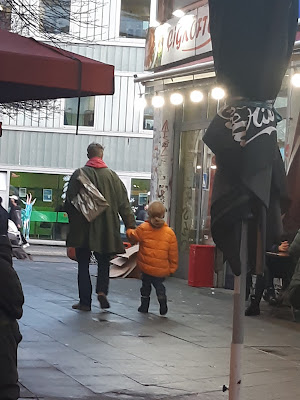It's sexy to complain about Berlin, so much that it's a virtual necessity to living there. Visitors to the city might scratch the surface of its cultural life, political problems, or social atmosphere, but those who try to live in it can get a deeper understanding, especially of how difficult it is to actually survive here for many people not the beneficiaries of parental trust funds - and of how things are changing. Berlin used to be be both a saviour and a curse at the same time, a city which both compounds and alleviates precarity. But now something entirely else seems to be happening in the city.
I have lived here for 10 years, and never written about it. I'm not in love with Berlin, and I never have been - the pretentious and superficial parts always prevented me from really connecting with it. I live here in a marriage of convenience. The parts that excite me, especially the authentic radical left politics which somehow survived here in our neoliberal context, built discourse, and worked to protect so much that has been destroyed in other places, have largely disappeared or been twisted beyond recognition, even as my favourite low-key haunts have been painted over with designer paints. Now, the city looks and feels to me a lot like any other place, its rough edges smoothened out, with a shiny Big Tech gloss over every street lamp.
A street scene in Kreuzberg, Berlin. Photo from me.
Since the 90s, Berlin has been in a state of adjustment. The fall of the Berlin Wall created a period of flux that produced a lot of strange phenomena - empty buildings, especially, which were sometimes squatted before being turned into cultural spaces or social projects. These gaps were often filled by hungry investors, conglomerates who plunged money into the former East, often without any plan for how to actually deploy what they bought. Changing governments have faced problems of excessive speculation in a marketplace that no longer services any actual need, with space distributed by a roulette wheel of capital and government interest. The desire to regulate this situation meets the reality of global capitalism, sometimes creating agreements, but more often something like a permanent stasis.

